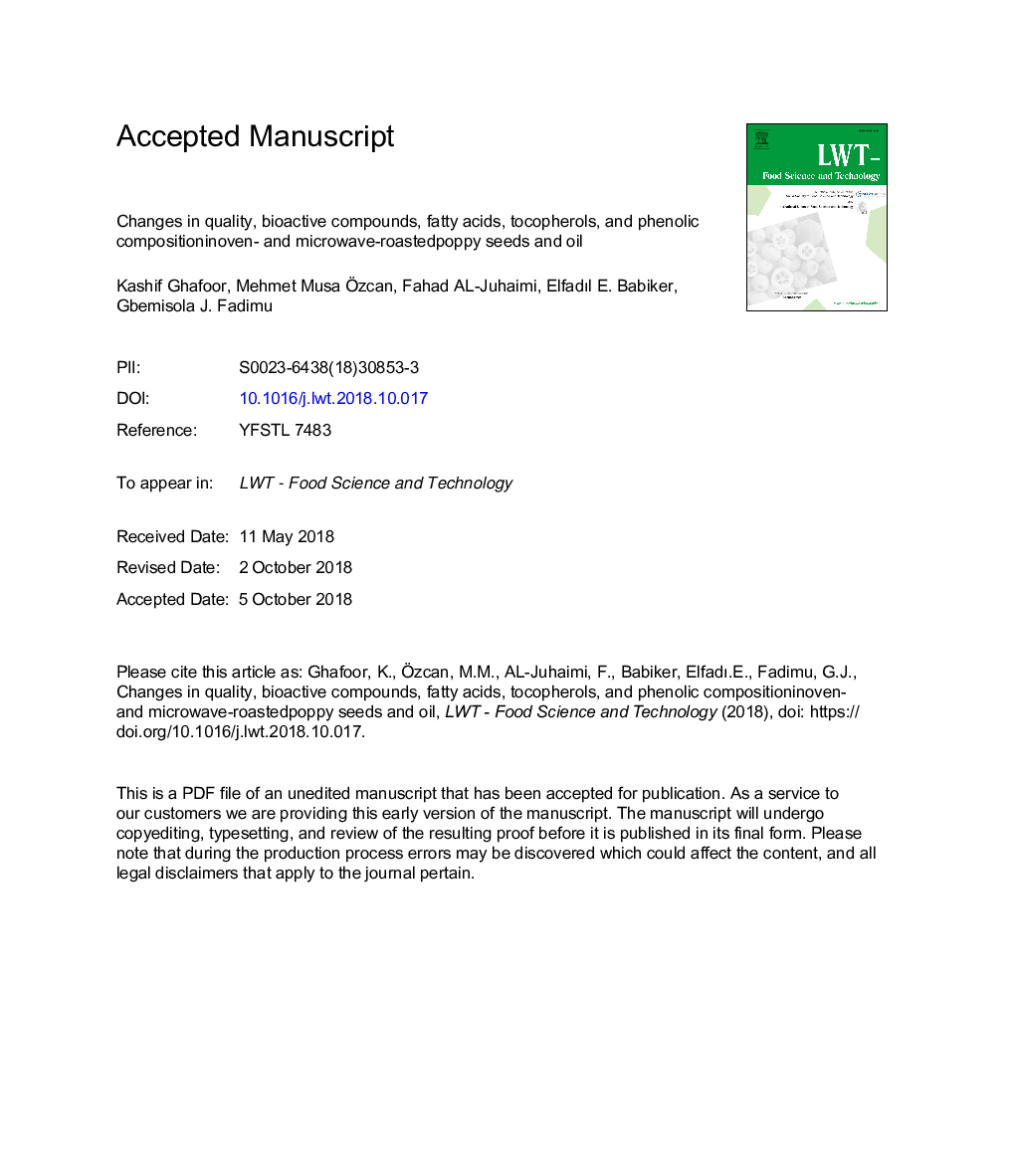| Article ID | Journal | Published Year | Pages | File Type |
|---|---|---|---|---|
| 11263487 | LWT - Food Science and Technology | 2019 | 21 Pages |
Abstract
The oil quality, fatty acid composition, tocopherol contents, and phenolic compounds of oven- and microwave-roasted seeds from three different poppyvarieties (blue, yellow, and white) were investigated. The quantity, acidity, unsaponifiable matter, peroxide, and saponification values of oilwere generally higherin roasted seeds compared to thoseinraw poppy seeds (control). Total phenolics, flavonoids, anthocyanin contents, and antioxidant activity of roasted seeds were less than those of the control. Roasting decreased fatty acid contents including linoleic acid in blue, yellow, and white seeds and its contents remained 57.91, 61.91, and 64.83% incontrol oil (oil from raw seeds)but decreased to57.23, 60.78, and 64.11% in oven-roasted and 56.97, 60.08, and 60.84% in microwave-roasted seedoil, respectively. The tocopherol (α, β, γ, and δ) contentsalsodecreasedafter roastingandβ and γ-types predominated. The major phenolic compoundswerevanillic, p-hydroxybenzoic, ferulic, p-coumaric,cinnamic, and protocatechuic acids. Thevanillic acid content rangedfrom 64.38-71.17â¯mg/100â¯g inraw seed, 41.86-49.76â¯mg/100â¯g inoven-roasted, and 43.66-56.71 mg/100 gin microwave-roastedseed. The current study revealed that poppy seeds and their oilhave excellent nutritional qualitiesthat are significantly reduced after roasting.
Related Topics
Life Sciences
Agricultural and Biological Sciences
Food Science
Authors
Kashif Ghafoor, Mehmet Musa Ãzcan, Fahad AL-Juhaimi, Elfadıl E. Babiker, Gbemisola J. Fadimu,
